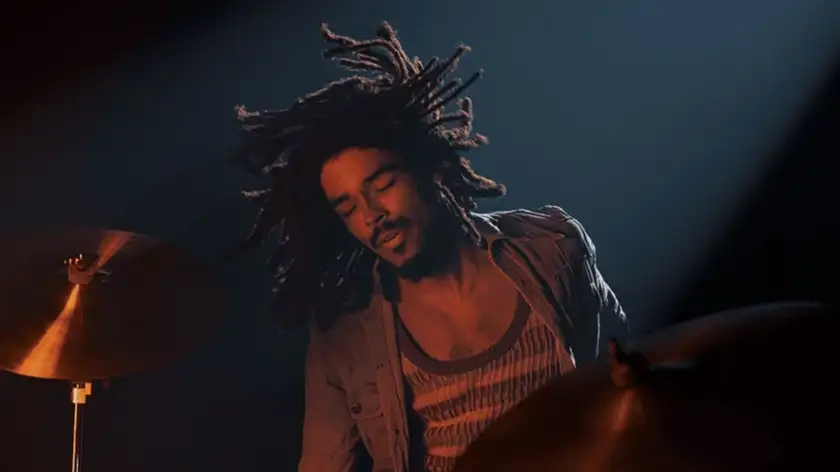Bob Marley: One Love is a fairly predictable biopic that rarely deviates from the genre’s formula but delivers its message well.
When it was announced that Bob Marley’s life story was going to be brought to the screen by King Richard’s Reinaldo Marcus Green, expectations for the project were understandably high. The reggae icon led a deeply complex and tragically short existence, the echoes of which are still felt today in our values of peace and freedom. Marley’s political activism and cultural impact made him much more than a regular singer, but rather a cult-like figure that’s hugely important to Jamaica’s history and the perception of international music as a gateway to understanding and accepting other cultures. All of this makes him the perfect candidate for this kind of movie – and while Bob Marley: One Love does touch on these aspects of Marley’s life, the film unfortunately fails to capture the magnitude of his story and opts instead for a much simpler, more saturated portrait of his career.
Bob Marley: One Love opens with the singer’s career already at the height of its success as a series of title cards describe the ongoing political disputes in Jamaica. From here, the first act follows Marley as he grapples with the importance of his upcoming concert, which aims to bring the country together despite the growing political tensions – and it’s this section of the film that proves how interesting One Love could’ve been if it stuck on these tracks. The film’s dried-out depiction of Kingston during this period of social unrest is fascinating, and Marley’s career initially seems like an ideal perspective from which to tell this important narrative. It’s unlike most biopics, avoiding the artist’s rise to success and beginning in media res for a less conventional approach to the story.
However, this subversion of the formula doesn’t last for long, as the political side of the narrative completely runs out of steam and One Love turns instead to a surface-level deconstruction of Marley’s personal life that audiences have seen a thousand times before in any of the countless musical biopics that have been released in the past ten years. Career disagreements, romantic conflicts, and crumbling friendships are lifted directly from movies such as Bohemian Rhapsody or Rocketman, which is such a shame because there’s a genuine socio-political drama hidden beneath the glossy facade of One Love’s kitschy sentimentalism – it’s just buried beneath this formula that audiences keep coming back to with different faces at the helm.

Of course, it’s unavoidable that these movies are going to deal with many of the same themes since they comment on plenty of the same issues with the music industry, but it’s the relentless adhesion to the formula that stops One Love from ever developing an identity of its own. But that’s not to say that there’s nothing enjoyable about the film, because it’s very competently made and the two lead performances from Kingsley Ben-Adir and Lashana Lynch are absolutely transformative and its because of their dedication to this story that it never completely falls apart. Their relationship is genuinely compelling, and despite the film’s unwillingness to take many risks with the story, the actors’ performances are where that much-needed boldness and personality can be found.
Ben-Adir was a brilliant choice to play Bob Marley, and he makes the most of every scene – particularly during the musical scenes where he’s giving an incredibly physical performance that mirrors Marley’s on-stage persona perfectly. In fact, One Love’s use of music and singing to create an infectious energy and celebrate Marley’s career is pretty well-done, with the film’s best moments happening during these recording sessions that allow Ben-Adir to really get into the artist’s soul and display clearly to the audience how innovative his music was. The concert scenes have no shortage of the slow-motion montages that have been in every musical biopic in recent memory, but it’s hard to complain too much when the catchy music creates a break from the repetitive drama.
Ultimately, Bob Marley: One Love will simply go down as another entry in a long-line of musical biopics that know how to keep the audience’s attention for two hours but fail to achieve anything deeper than that. It’s got all the hallmarks that this subgenre has become synonymous with, and despite a promising first act that seemed to set the stage for something new and interesting, it will likely seem familiar to anybody who’s sat through enough of these films before. There’s so much more to Bob Marley’s career and legacy that could’ve been covered, and this feels as though, despite its technical achievements and undeniable performances, its focus is ultimately in the wrong place.
Bob Marley: One Love is out now globally in theaters. Read our review of Unsung Heroes!

